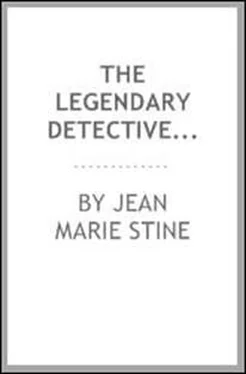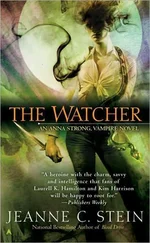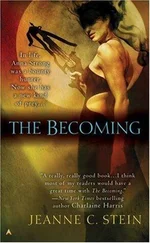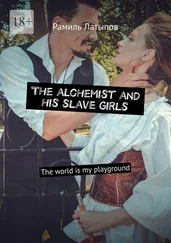"I think I remember your tastes, Hulse," he said suavely. "I hope that you have no objection to Scotch whisky, Mr. Carrados? We still have a few bottles left. Or perhaps you prefer champagne?"
Carrados had very little intention of drinking anything in that house, nor did he think that with ordinary procrastination it would be necessary.
"You are very kind," he replied tentatively. "Should you permit the invalid either, Miss Darragh?"
"Oh, yes, in moderation," she smiled. "I think I hear your car," she added, and stepping to the window ventured to peep out.
It was true. Mr. Darragh had run it a shade too fine for once. For a moment he hesitated which course to take – to see who was arriving or to convey a warning to his henchman down below. He had turned towards the door when Violet's startled voice recalled him to the window.
"Hugh!" she called sharply. "Here, Hugh," and as he reached her, in a breathless whisper, "There are men inside the car – two more at least."
Darragh had to decide very quickly this time. His choice was not without its element of fineness. "Go down and see about it, Katty," he said, looking Kato straight in the eyes. "And tell Phillips about the whisky."
"Door locked," said the Japanese tersely. "Key other side."
"The key was on this side," exclaimed Darragh fiercely. "Hulse-"
"Hell!" retorted Beringer expressively. "That jacket doesn't go out of the room without me this journey."
Darragh had him covered before he had finished speaking.
"Quick," he rapped out. "I'll give you up to three, and if the key isn't out then, by God, I'll plug you, Hulse! One, two-"
The little "ping!" that followed was not the automatic speaking, but the release of the electric light switch as Carrados, unmarked among this climax, pressed it up. In the absolute blackness that followed Darragh spun round to face the direction of this new opponent.
"Shoot by all means, Mr. Darragh, if you are used to firing in the dark," said Carrados' imperturbable voice. "But in any case remember that I am. As I am a dead shot by sound, perhaps everyone had better remain exactly where he – or she, I regret to have to add, Miss Darragh – now is."
"You dog!" spat out Darragh.
"I should not even talk," advised the blind man. "I am listening for my friends and I might easily mistake your motive among the hum of conversation."
He had not long to wait. In all innocence Phillips had opened the door to Parkinson, and immeasurably to his surprise two formidable-looking men of official type had followed in from somewhere. By a sort of instinct – or possibly a momentary ray of light had been their guide they came direct to the locked door.
"Parkinson," called Carrados.
"Yes, sir," replied that model attendant.
"We are all in here; Mr. Hulse and myself, and three – I am afraid that I can make no exception – three unfriendlies. At the moment the electric light is out of action, the key of the locked door has been mislaid, and firearms are being promiscuously flourished in the dark. That is the position. Now if you have the key, Hulse-"
"I have," replied Hulse grimly, "but for a fact I dropped it down my neck out of harm's way and where the plague it's got to-"
As it happened the key was not required. The heavier of the officers outside, believing in the element of surprise, stood upon one foot and shot the other forward with the force and action of an engine piston-rod. The shattered door swung inward and the three men rushed into the room.
Darragh had made up his mind, and as the door crashed he raised his hand to fire into the thick. But at that moment the light flashed on again and almost instantly was gone. Before his dazzled eyes and startled mind could adjust themselves to this he was borne down. When he rose again his hands were manacled.
"So," he breathed laboriously, bending a vindictive eye upon his outwitter. "When next we meet it will be my turn, I think."
"We shall never meet again," replied Carrados impassively. "There is no other turn for you, Darragh."
"But where the blazes has Kuromi got to?" demanded Hulse with sharp concern. "He can't have quit?"
One of the policemen walked to a table in the farthest corner of the room, looked down beyond it, and silently raised a beckoning hand. They joined him there.
"Rum way these foreigners have of doing things," remarked the other disapprovingly. "Now who the Hanover would ever think of a job like that?"
"I suppose," mused the blind man, as he waited for the official arrangements to go through, "that presently I shall have to live up to Hulse's overwhelming bewonderment. And yet if I pointed out to him that the buttonhole of the coat he is now wearing still has a stitch in it to keep it in shape and could not by any possibility… Well, well, perhaps better not. It is a mistake for the conjurer to explain."
(Detective: Sanders of the River)
Probably no other mystery author created more celebrated detectives than Edgar Wallace (1875-1932). In part, this is because no other author wrote as many mystery novels as he did. In total Wallace produced one hundred seventy-five books and twenty-four plays. A complete list of his most popular detectives would fill up this page, but among them are Mr. J. G. Reeder ( The Mind of J. G. Reeder 1926), Arthur Milton ( The Ringer 1925), Educated Evans ( Educated Evans 1922), Derrick Yale ( The Crimson Circle 1922), Tony Braid ( The Twister 1928), Sure-Foot Smith ( The Silver Key 1930), and, of course, Mr. Commissioner Sanders. Sanders of the River, as the Commissioner is known, is one of the men appointed to administer justice for the British crown in South Africa during its years as a colony, was such a reader favorite that to satisfy demand, Wallace chronicled ten volumes of his adventures, beginning with Sanders of the River (1911) and ending in Again Sanders (1928).
Don Murdock came to the territories with three guns and a breaking heart. At least he had tried to keep the rifts wedged open and still preserved the similitude of hopeless grief and unconquerable despair. It had been easy enough that night when the New York skyline was falling astern and he had looked over the side of the Berengaria and had seen, almost on the verge of tears, the pilot's hazardous climb to the waiting boat.
This man, thought Donald, swallowing a lump in his throat, was going back to a woman who loved him. A sane, shrewd mother of children, who went to church on Sundays and scoffed at ghosts. He could not imagine Mr. Pilot and Mrs. Pilot facing one another, trembling with fury over the matter of manifestations.
He could not imagine Mrs. Pilot drawing her wedding ring from her finger, flinging it on to the table and saying: "I think we are wasting time, Donald: you cannot understand and never will understand. You are just puffed up with conceit like every other college boy – you think people are crazy because you haven't the vision or the enterprise to get outside your own narrow circle…"
All that sort of stuff, mostly illogical, but very, very, poignant.
So Donald went tragically to the wilds and made a will before leaving New York, leaving half of his four million dollars to Jane Fellaby and the other half to found a society for the suppression of Spiritualism.
Jane had been bitten very badly. She had sat in at seances and had heard voices and seen trumpets move and heard tambourines play, and had had other spiritual experiences. And she objected to his description of Professor Steelfit as a "fake" and her spiritualistic aunt as a halfwit – and here he was sailing for Africa, the home of primitive realities and lions and fever.
Читать дальше












